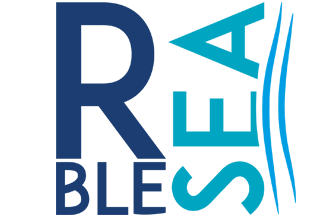Course Overview
Protecting our oceans: moving from knowledge to behavioral change
World oceans cover more than 72% of the planet surface. But as citizens, local authorities, economic sectors and civil society, what do we know about the oceans, the state of their ecosystems or the services they deliver to society? Do we (individually and collectively) know enough for us to act responsibly, so the pressures on marine ecosystems are reduced and opportunities offered by the oceans duly seized?
Evidence suggests that knowledge is not sufficient to promote widespread behavioural change. A first barrier might reside in the fact that this knowledge, although available, is currently scattered and not sufficiently structured and organized. As a second challenge, it might be difficult for the public and other economic actors to understand a complex system such as the ocean. Thirdly, knowledge might not be effectively conveyed to citizens and to the specific actors involved in the ocean-human interactions. And this is where ocean literacy comes into place.
This MOOC explores effective ways to move from knowledge to behavioral change through ocean literacy. In particular, during the course we will look for answers to the following questions:
- What do we know about the human-ocean relationships?
- Which opportunities for changing behavior of sea-connected socio-economic actors?
- How do (ocean) knowledge systems function?
- How can we establish conditions that enable individuals or organised groups to develop their knowledge and potential, so they can take their role and responsibility in society?
The course is offered by ResponSEAble, a research project supported by the Horizon 2020 Programme of the European Commission. The project involves 24 leading institutions from all over Europe, including marine biologists, ecologists, economists, social scientists, communication experts and ocean literacy experts. The MOOC will be taught by some ResponSEAble scientists and experts, as well as by some external European experts which participated to project activities.
Learning Objectives
During the MOOC, you will learn how knowledge can and should be effectively conveyed to the public and other key stakeholder, so that we can collectively change our behaviour and act responsibly towards our seas and oceans.
In particular, during the course you will get familiar with:
- The ResponSEAble approach to gathering knowledge and to translate it into effective ocean literacy products;
- Some key marine environmental issues, the related human-ocean relationships and the key actors who could bring about behavioural change;
- Communication on ocean issues, including: (i) media; (ii) communication with some specific actors; and (iii) ocean literacy initiatives at the EU level;
- Behavioural change, from a psychological point of view;
- Ocean literacy products and initiatives.
Outcomes
During the course assignments, you will be able to put in practice what you have learnt, to think critically on key marine issues and on communication methods, and to bring in your own ideas and suggestions on how knowledge should be best conveyed.
After the first three lessons, assignments will focus on the topics presented by teachers: you will be asked to answer to a few questions that will assess your overall understanding of the topics.
After the fourth lesson, you will need to choose one of the key environmental issues tackled by the ResponSEAble project (the Key Stories) and, from that moment on, your work will focus on that specific topic. In particular, through lesson 4, 5 and 6, you will work on the following aspects:
- How is the Key Story communicated in the media in your country?
- How could you change your practices and behaviour in your own life? Which could be the pre-conditions and factors for success that would ensure you effectively change behaviour and factors for success that would ensure change of behaviour?
- How could knowledge be best communicated and transmitted to achieve the desired behavioural change? Which key messages should be conveyed? Through which channels? Through which media and products?
For each of these assignments, you will be provided with a practical guidance that will help you structure your thoughts, ideas and actions.
Certification and Additional Info
EMMA provides a certificate to whom complete more than 70% of the course. These certificates are not credit bearing.
You will receive your certificate directly via email a couple of weeks after the end of the course.
Use of content and licenses
The content of this course is subject to the Creative Commons copyright licenses: 
Course Structure
- Lesson 1 - Introduction to this MOOC and the ResponSEAble approach
- Lesson 2 - How to be ResponSEAble? Who should change behavior? Stories from our oceans
- Lesson 3 - How to be ResponSEAble? Who should change behavior? Stories from our oceans (part 2)
- Lesson 4 - Dialoguing with ocean’s actors and the public: what has worked, and what has gone wrong?
- Lesson 5 - From knowledge to behavioural change
- Lesson 6 - Final assignment
Teacher
Olga Mashkina
Olga is the
coordinator of the ResponSEAble project. She has PhD in environmental economics
and is a senior environmental economist in ACTeon with over 15 years of
experience in environmental economics and policy (in particular marine and
forest ecosystems). Having spent ten years in USA and then in Finland, Olga has
expertise with socio-economic methods and use of economic instruments in
environmental policy as well as policy evaluation. She has also particular
interest in the area of institutional economics, multi-level governance and
changing actors’ behaviour as well as creation and dissemination of
environmental knowledge and science-policy interface




